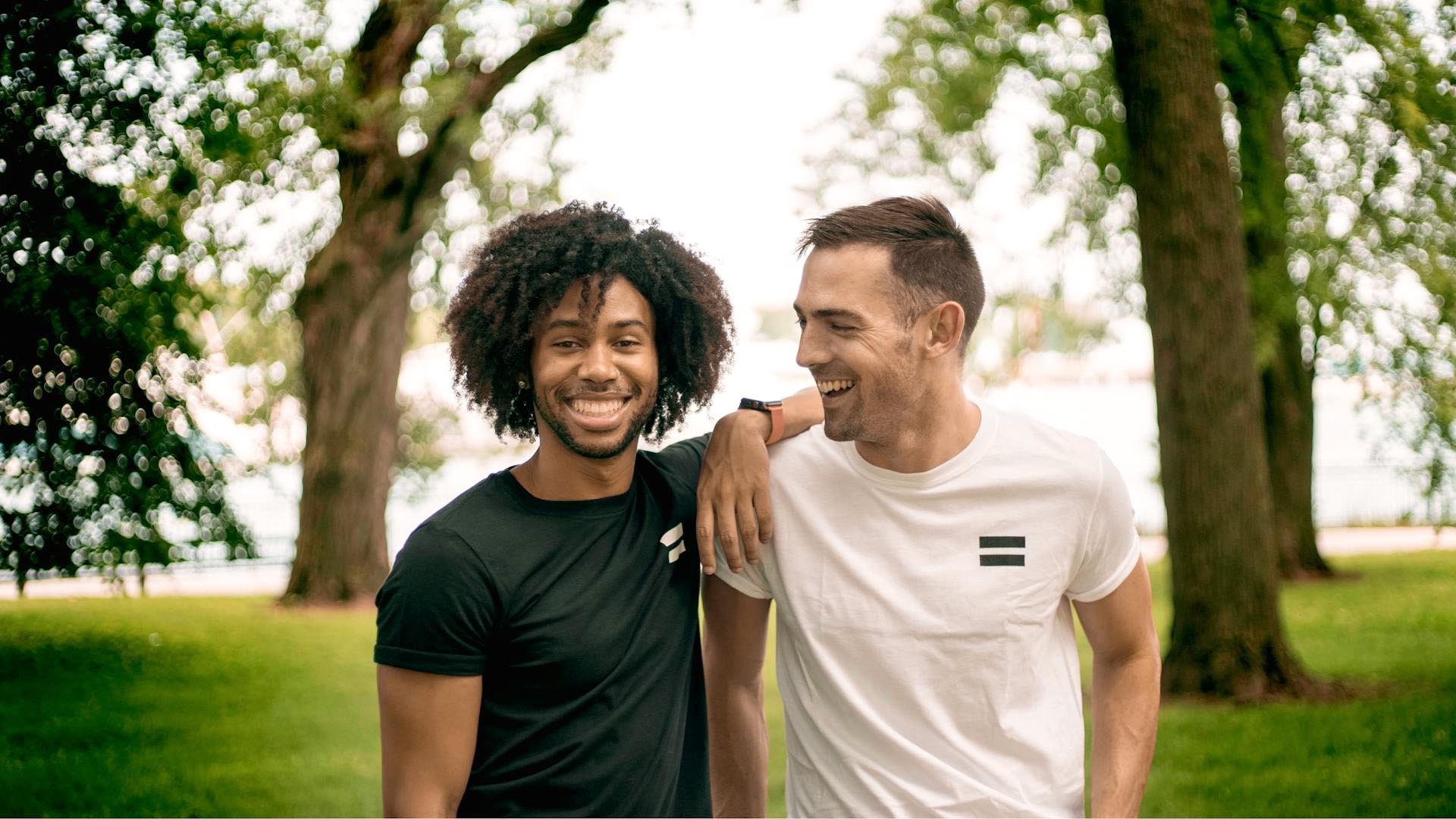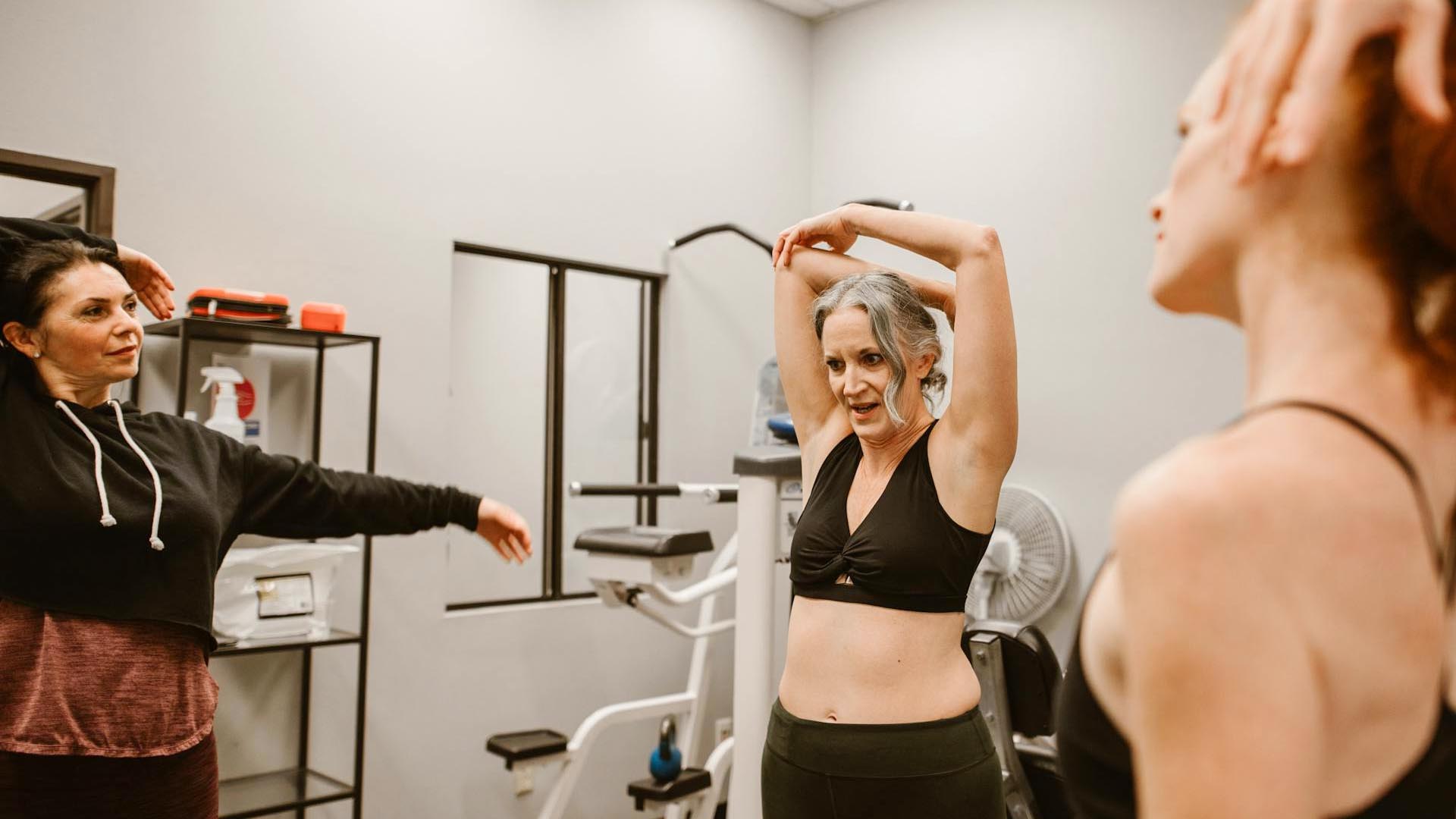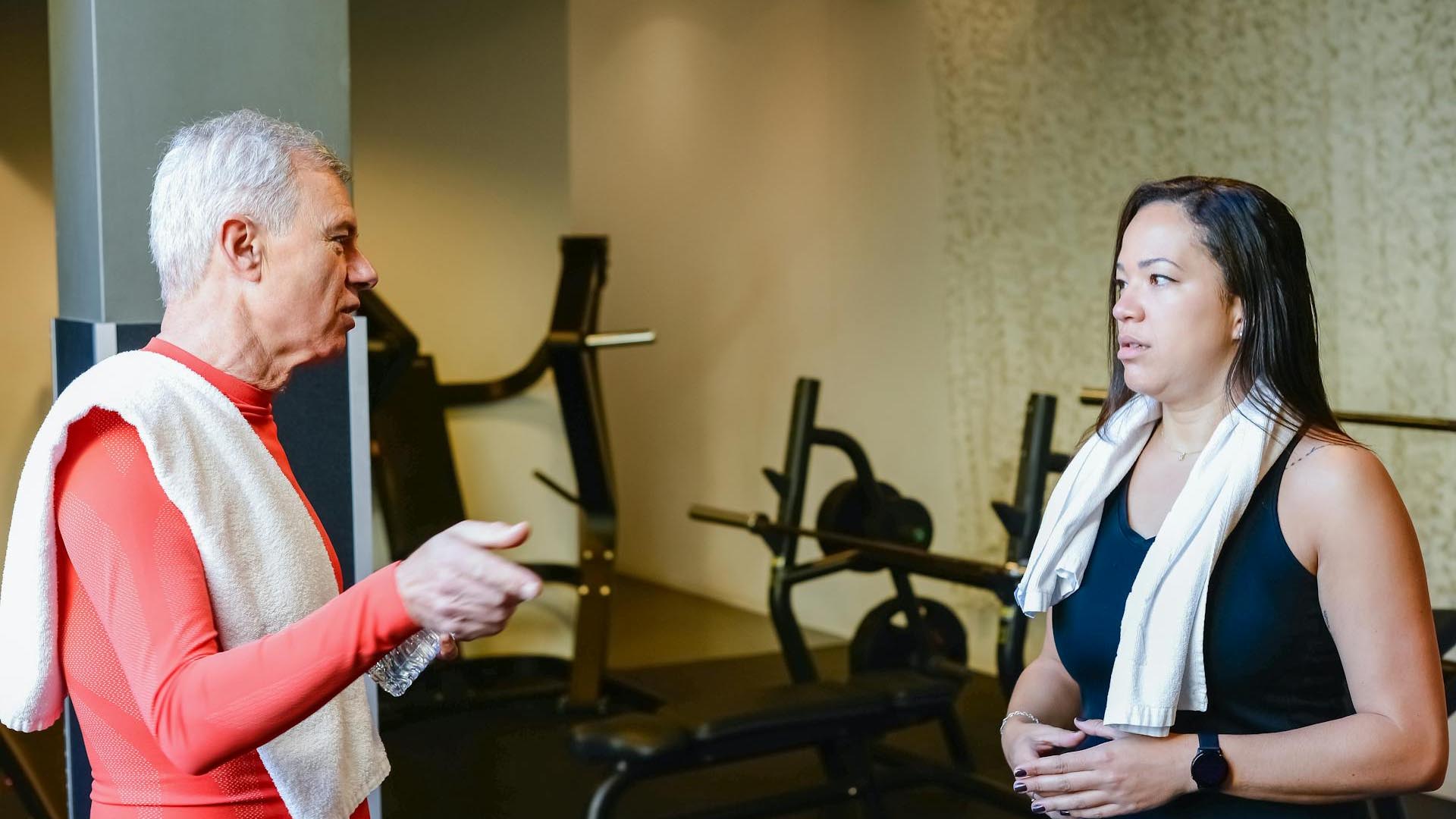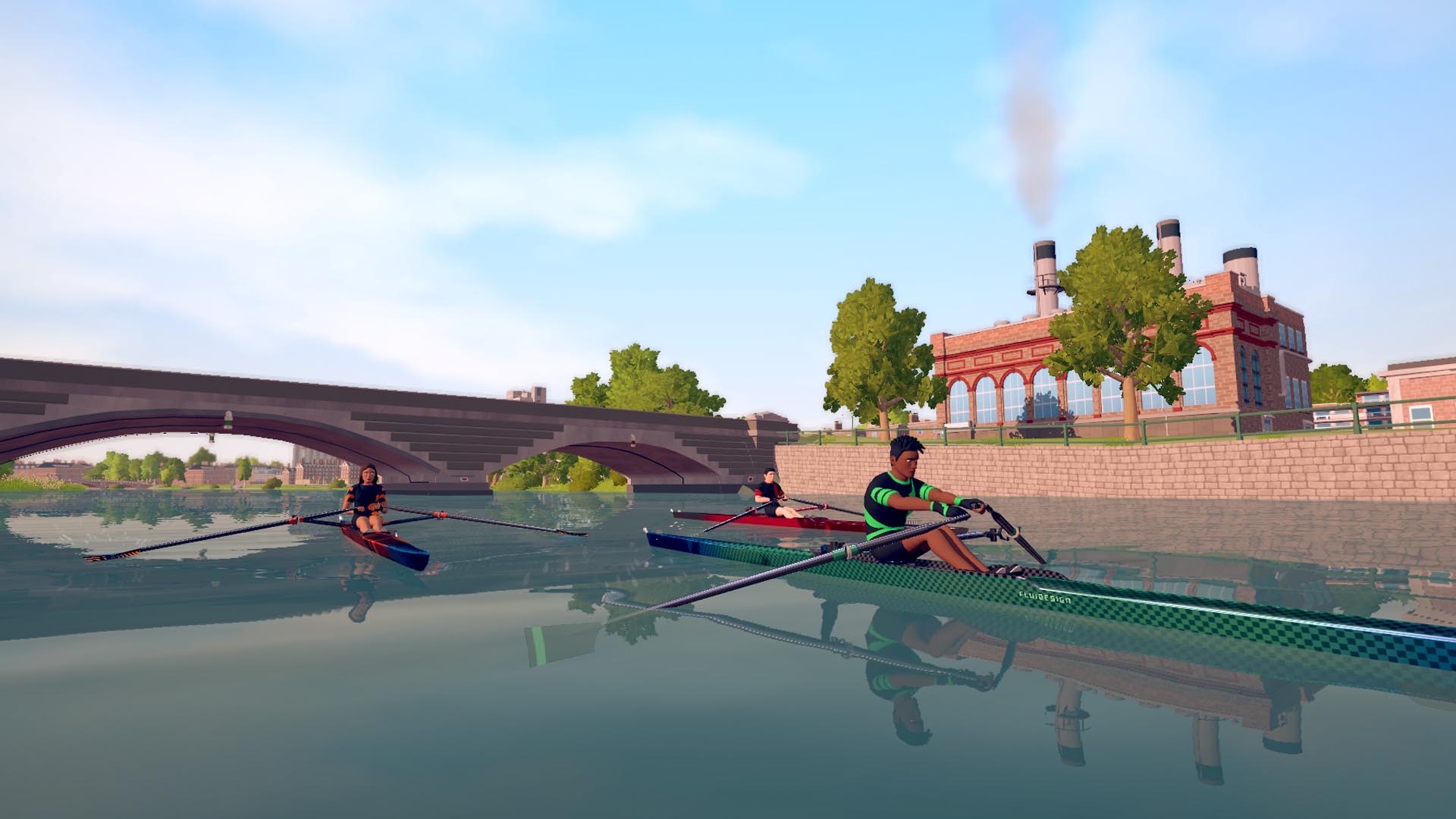Longevity: are online rowing communities the secret to a better life?

read
Hi, my name is Ulf. I'm a German web development professional turned entrepreneur. Being passionate about staying active, I enjoy jogging, hiking in the Black Forest, mountain biking, playing volleyball and of course indoor rowing. As a father of three, I understand the challenges of balancing family, work, and fitness and share my experiences on my blog called Harder Better Faster Stronger.
Longevity stands for living a high-quality life as long as possible — how is that achievable? When I recently sent an article on this topic to my friend Christoph, his response was: "We should meet up more often again."
Diet and physical activity are often labeled easy areas to improve for a self-optimized lifestyle. However, fostering social connections is something many fail to address as this isn’t as straightforward. Meeting up with other people, exchanging ideas and thoughts, and maintaining relationships may feel draining, especially for more introverted individuals. At the same time, socializing is supposed to be a key to a long life by promoting well-being, so how does that work?
Understanding social needs — everyone is different
Not everyone has the same social needs. For example, I write a fitness blog — sometimes also about longevity — andoccasionally publish videos on YouTube. This style of communication may be considered extroverted by lots of people. After all, someone whoactively engages with others and uses various platforms to communicate with the public must be an extrovert, right?

Extroverts thrive on social interactions, drawing energy from interacting with others and feeling comfortable in large groups. Regular meetings with friends and community events are essential for their well-being.
In my case, if you ask my close friends and family about this matter, they'll tell you that I need a lot of "me time" and really enjoy being alone. While I do maintain relationships with them, which of course includes some level of communication, I always try to balance it with plenty of time for myself.
On the contrary, introverts often prefer quieter and more in-depth conversations in smaller groups. Maintaining close friendships that provide emotional security is important for them.
I love working from the solitude of my home office, where I still communicate frequently via email, messenger, video calls, and chats. It's a balancing act that sometimes works well and other times not so much. The pandemic's social isolation was challenging for me, but it also gave me a chance to better understand people's different needs. That’s why I’m surprised by the push from companies to bring employees back to the office. While collaboration is important, being in the same physical space doesn't always improve the quality of work since not everyone feels as comfortable or energetic when being in a large group every day of the workweek.

In addition to the two opposing types of people, there are also ambiverts. They are a mixture of both extremes and can flourish in both large and small groups, depending on the situation. They benefit from a balanced mix of social events and calm, intimate encounters
The benefits of good relationships and how to reap them
As humans are social creatures by nature, relationships are an essential part of our lives. They provide emotional support, boost our self-esteem, promote a sense of belonging and, according to a study published in the Psychological Science magazine, make us happier. But the benefits of social contact go far beyond the purely emotional.

3 health benefits of strong social networks
- Mental health: People with a strong social network are less likely to suffer from depression and anxiety. A supportive environment can help to cope with stress and reduce mental strain.
- Physical health: Social interactions may strengthen the immune system and have an anti-inflammatory effect. A study by Harvard University has shown that people with a great social network have a lower risk of dying prematurely. In addition, socially connected people tend to lead healthier lifestyles, which in turn reduces the risk of chronic illnesses such as cardiovascular disease.
- Cognitive health: Social activities can stimulate the brain and reduce the risk of cognitive impairments such as dementia. A study by Rush University Medical Center found that people who regularly engage in social activities have a lower risk of Alzheimer's disease.
These findings lead to the question of how you can use this knowledge for yourself.
How to decide on who to connect with for healthy relationships
Maintaining social contacts can be approached in several ways. One option is to renew old relationships, like getting back in touch with former friends from childhood or adolescence, siblings, or others with whom we've shared meaningful moments. Another option is to appreciate and nurture our everyday contacts, such as work colleagues, fellow students, or neighbors.

When focusing on your relationships, consider who should be part of your network. Ask yourself which people uplift you, and which ones are causing stress. This reflection might help you identify which connections deserve more of your energy and which ones could benefit from improvement. Spending time together is essential for any sense of community, and over time, this will lead to strong and lasting relationships.
Community events: virtual rowing meetups with EXR
Community events are a great way to maintain social contacts and stay healthy and active at the same time. One example of this is the virtual rowing meetings with the EXR app. Virtual reality and gamification bring together people around the world who share a passion for indoor rowing. Some rowers already know each other and meet up, while others get to make new contacts by coincidentally rowing at the same pace.
EXR makes it possible to create a sense of community as these events convey a strong sense of belonging. Participants feel part of a community, which increases their motivation and well-being. Later on, the session is discussed on Discord or Strava.
Community rows offer important elements and unique advantages that may eventually contribute to a healthy and active life:
- Physical activity: Virtual rowing meetings promote physical activity, which in turn has numerous health benefits. Regular rowing strengthens the cardiovascular system, improves endurance, and helps build muscle.
- Mental stimulation: Taking part in virtual events and competitions in combination with striving for personal bests improves mental fitness and can provide a positive distraction from everyday stress.
- Flexibility: Virtual events offer the flexibility to participate from anywhere. This is particularly important in times when physical outings are not possible or when people live far away from each other.
But can virtual contacts and virtual reality truly considered social interactions, or is real-life interaction more valuable? People communicate with people, regardless of the form the communication takes. In addition to virtual reality, friendships and acquaintances can also be established offline. You cannot not communicate.
Thrive with strong social connections and EXR community events
In conclusion, social contacts are a central part of a long and healthy life. They promote our mental, physical, and cognitive health and contribute significantly to our well-being. Whether extroverted, introverted, or ambivert — you always benefit from a strong social network.

Community events such as virtual rowing gatherings with EXR offer a great way to strengthen social bonds while staying active. No matter your fitness level and pace, you’re always welcome to join me a upcoming EXR community events.
Check out all upcoming events
See event list